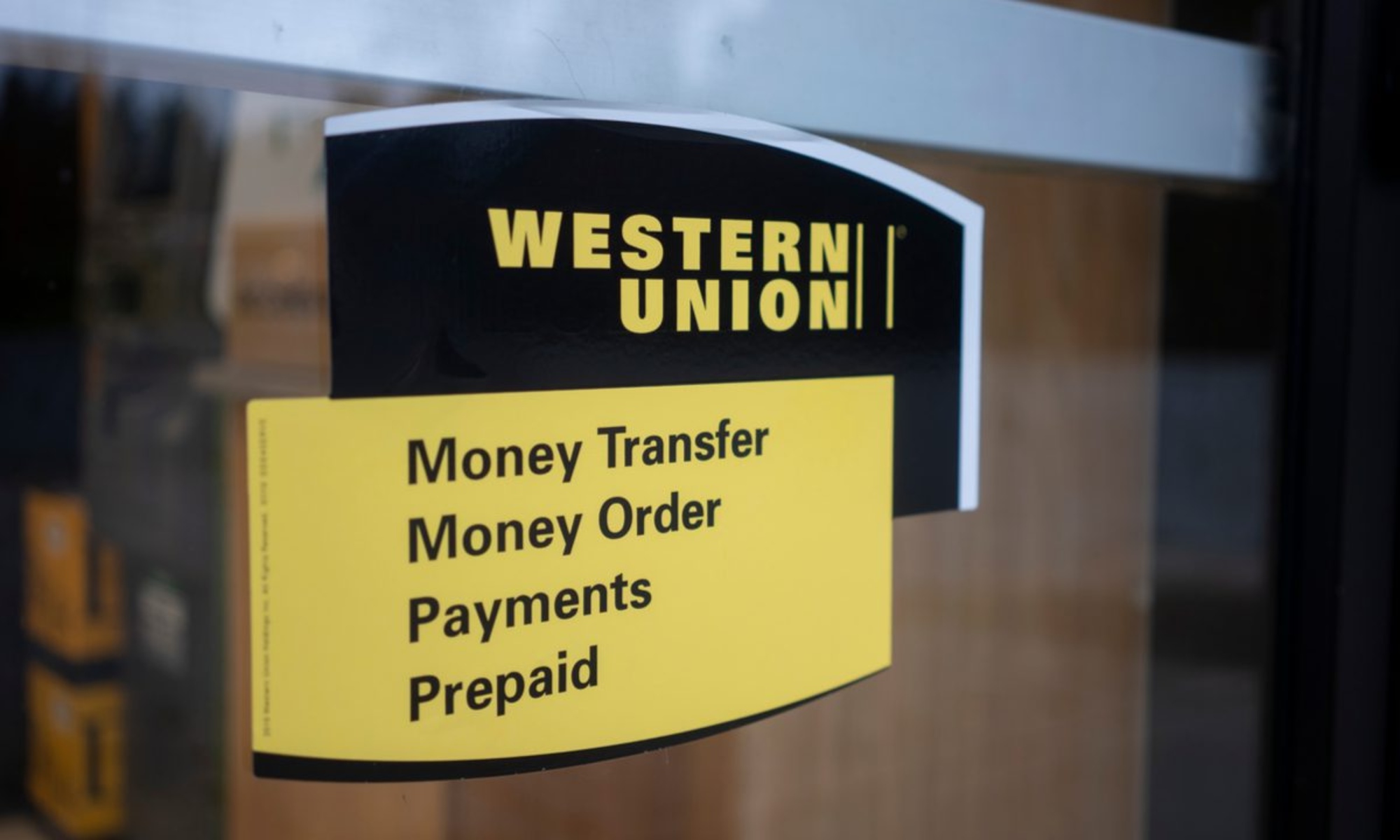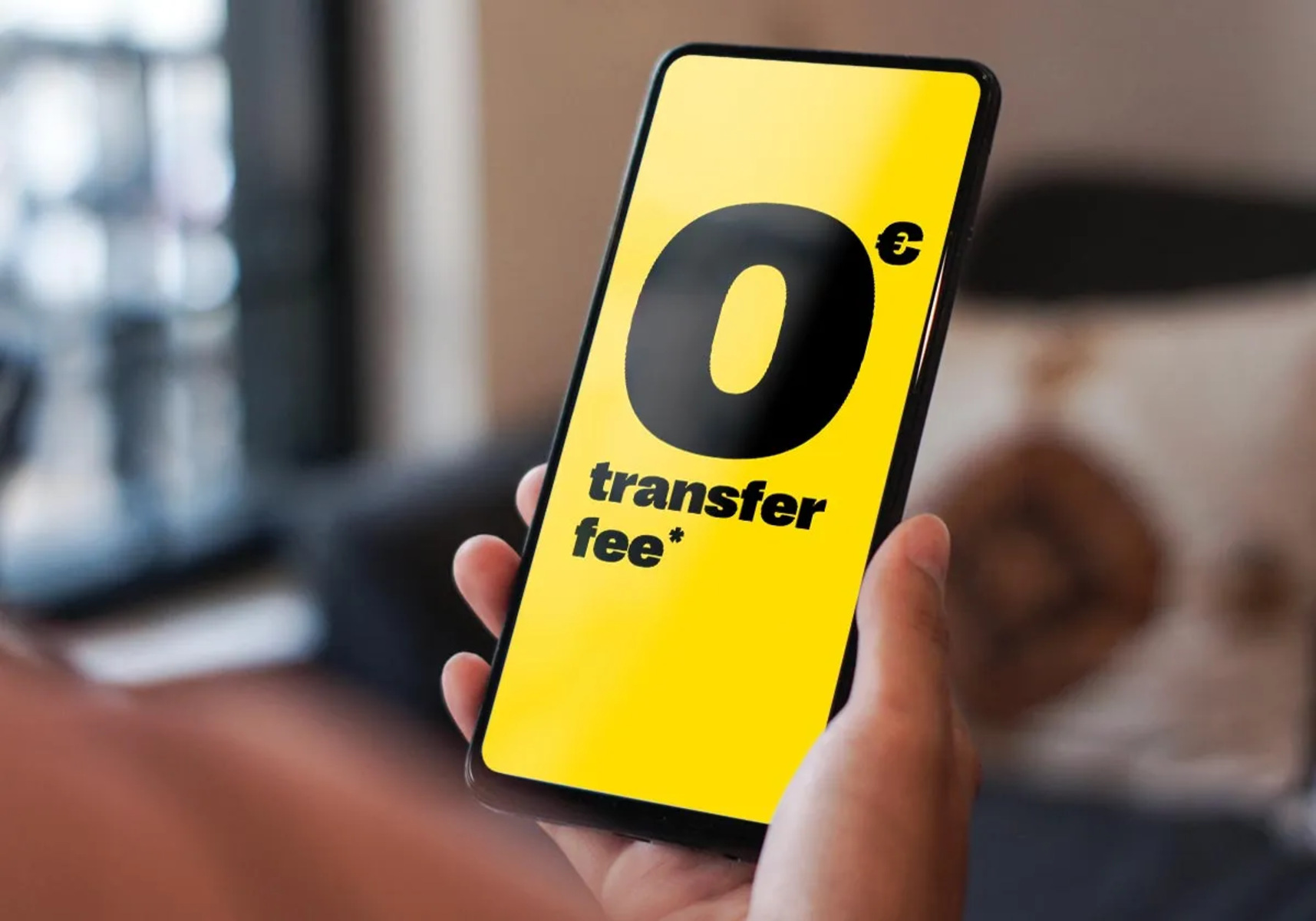Introduction
Western Union is a widely recognized and trusted name in the money transfer industry. With its global presence and extensive network, it allows individuals to send and receive money across borders with ease and convenience. However, like any financial service, there are certain limits and restrictions in place to ensure security and compliance.
Understanding the limits for Western Union money transfers is crucial, whether you are sending or receiving funds. These limits vary based on various factors, including the method of transfer, the recipient’s location, and the purpose of the transaction.
In this article, we will delve into the important details regarding Western Union transfer limits. We will explore the limits for both sending and receiving money, discuss the various factors that influence these limits, and provide information on how to increase your limit when needed.
It is important to note that Western Union offers both online and in-person transfer services. The limits may differ based on the delivery method chosen, so we will cover each scenario separately. By the end of this article, you will have a comprehensive understanding of the limitations associated with Western Union money transfers.
Whether you are a frequent user of Western Union or new to the service, understanding the transfer limits will help you plan your transactions more effectively and ensure a smooth transfer process.
Sending Limits
Western Union imposes certain limits on the amount of money that can be sent through their service. These limits are in place to prevent money laundering, fraud, and other illicit activities. The sending limits may vary depending on whether you are using the online platform or conducting an in-person transaction at a Western Union agent location.
Online Transactions:
When sending money online through Western Union, the sending limits typically range from $1,000 to $5,000 per transaction. These limits may vary based on the destination country and the currency being sent. To know the specific sending limit for your transaction, you can refer to the Western Union website or contact their customer support.
It is worth noting that if you are a verified Western Union customer with a track record of successful transactions, you may be eligible for higher sending limits. Western Union may offer increased limits based on your transaction history and the verification status of your account. This can allow you to send larger amounts of money conveniently.
In-Person Transactions:
If you prefer to conduct your money transfer in person at a Western Union agent location, the sending limits may vary. In most cases, the sending limits for in-person transactions are higher compared to online transactions. However, it is essential to note that these limits can still depend on several factors, including the destination country and the purpose of the transaction.
Generally, Western Union agents have the authority to set their own sending limits based on their risk management policies. The limits can range from a few thousand dollars to tens of thousands of dollars per transaction. To find out the specific sending limit at your nearest Western Union agent location, you can contact them directly or visit their website for more information.
To ensure compliance with local regulations and to protect their customers, Western Union may request additional information or documentation for high-value transactions. This is a standard practice to verify the legitimacy of the transaction and prevent fraudulent activities.
Understanding the sending limits for Western Union money transfers can help you plan your transactions accordingly. Be sure to factor in these limits when sending money to ensure a smooth and hassle-free transfer process.
Receiving Limits
Just as Western Union sets limits for sending money, they also have limits in place for receiving money. These limits ensure that the recipients receive their funds securely and within legal boundaries. Receiving limits can vary based on the location of the recipient and the method they choose to receive the funds.
Online Transactions:
If you are receiving money through Western Union’s online platform, the receiving limits may differ depending on the destination country and currency. In general, the receiving limits for online transactions range from a few hundred dollars to several thousand dollars.
Western Union provides the flexibility to receive money directly into your bank account, mobile wallet, or through cash pickup at an agent location. The specific receiving limit for each option can vary. It is important to note that some countries may have lower receiving limits due to regulatory requirements or local restrictions.
In-Person Transactions:
If you choose to receive money in person at a Western Union agent location, the receiving limits can be higher compared to online transactions. These limits are usually set by the agent location based on their risk management policies and local regulations.
Receiving limits for in-person transactions can range from a few thousand dollars to several tens of thousands of dollars. However, it is essential to check with the specific Western Union agent location to determine the maximum amount you can receive in cash or as a direct deposit to your bank account.
When receiving large sums of money, Western Union may require you to provide identification and additional documentation to verify your identity and comply with anti-money laundering regulations.
It is important to note that receiving limits can also be influenced by factors such as the purpose of the transaction, the recipient’s relationship with Western Union, and local regulations. Hence, it is advisable to check the specific receiving limits for your location and method of receiving money to ensure a smooth and efficient transfer process.
By understanding the receiving limits set by Western Union, you can ensure that your funds are received smoothly and that you comply with the necessary regulations and requirements.
Online Transactions
Western Union offers the convenience of sending and receiving money online through their secure and user-friendly platform. Online transactions provide a quick and efficient way to transfer funds internationally without the need to visit a physical agent location.
When it comes to online transactions, Western Union has implemented certain features and safeguards to ensure the security and reliability of the transfer process. Here are some important details to know about online transactions with Western Union:
- Convenient Accessibility: With online transactions, you can send money from the comfort of your own home or any location with an internet connection. Western Union’s website and mobile app are designed to provide a seamless and user-friendly experience.
- Flexible Payment Options: Western Union offers multiple payment options for online transactions, including credit cards, debit cards, and bank transfers. You can choose the method that is most convenient for you.
- Real-Time Exchange Rates: Western Union provides real-time exchange rates, allowing you to see how much money the recipient will receive in their local currency. This helps you to have a clear understanding of the amount being transferred.
- Track and Monitor Transfers: Through the online platform, you can easily track the status of your transfer and receive updates on its progress. This feature provides peace of mind and ensures transparency throughout the transaction process.
It is important to note that the sending and receiving limits for online transactions may vary. As mentioned earlier, these limits depend on factors such as the destination country, currency, and the purpose of the transaction. To ensure you stay within the set limits, it is advisable to check the specific limits mentioned on Western Union’s website or consult their customer support.
Western Union’s online platform has strict security measures in place to protect your personal and financial information. They use industry-standard encryption technology to safeguard your confidential data and prevent unauthorized access.
However, it is always recommended to exercise caution and follow best practices when conducting online transactions. Ensure that you are using a secure, private internet connection, and avoid sharing sensitive information with unknown or unverified individuals.
Overall, online transactions with Western Union provide a convenient and reliable way to send and receive money internationally. By utilizing their online platform, you can benefit from the ease of use, flexibility, and security that Western Union offers.
In-Person Transactions
In addition to their online platform, Western Union provides the option for in-person transactions through their extensive network of agent locations worldwide. These in-person transactions offer a convenient solution for individuals who prefer or require face-to-face interactions when sending or receiving money.
Here are some key details to know about in-person transactions with Western Union:
- Wide Agent Network: Western Union has a vast network of agent locations, including banks, post offices, and retail stores, making it accessible and convenient for individuals to conduct transactions in person. You can easily locate the nearest agent location through Western Union’s website or mobile app.
- Flexible Sending and Receiving Options: In-person transactions allow you to choose the most suitable method of sending or receiving money. Options include cash pickup, direct bank deposits, or mobile wallet transfers, depending on the recipient’s preferences and availability.
- Personalized Assistance: In-person transactions provide the advantage of personalized assistance from trained Western Union agents. If you have any questions or concerns about the transaction process, the agent will be able to assist you, ensuring a smooth and hassle-free experience.
- Higher Sending and Receiving Limits: In many cases, the sending and receiving limits for in-person transactions are higher compared to online transactions. This can be advantageous for individuals who need to transfer larger sums of money.
When conducting an in-person transaction, it is important to carry the necessary identification and documentation as per local regulations and Western Union’s requirements. This typically includes a valid government-issued ID, such as a passport or driver’s license, along with any additional documentation specific to the recipient’s country or the purpose of the transaction.
It is worth noting that the sending and receiving limits for in-person transactions may vary depending on the agent location. Each agent has the discretion to set their own limits based on their risk management policies and local regulations. Therefore, it is advisable to contact the specific agent location or check Western Union’s website for information on the maximum allowable amounts for in-person transactions.
Western Union takes the security of in-person transactions seriously. Their agents undergo training and adhere to strict operational guidelines to ensure the safety of your funds and personal information. However, it is still important to be cautious and vigilant when conducting financial transactions in person. Keep your transaction details private, and only share them with authorized Western Union personnel.
Overall, in-person transactions with Western Union offer a convenient way to send and receive money, with the added benefit of personalized assistance from trained agents. Utilizing the extensive network of agent locations ensures accessibility for individuals across the globe.
Factors Affecting the Limit
Several factors can influence the limits set by Western Union for sending and receiving money. It is important to be aware of these factors as they can determine the maximum amount you can transfer or receive through their services. Here are some key factors that can affect the limits:
- Destination Country: The limits for sending and receiving money can vary depending on the specific destination country. Different countries have different regulations and restrictions on cross-border transactions, which can impact the allowable limits.
- Purpose of the Transaction: The purpose of your money transfer can also affect the limits set by Western Union. Certain types of transactions, such as business transactions or emergency situations, may have higher limits compared to personal transfers.
- Verification Status: Western Union may offer higher limits to verified customers who have completed their account verification process. Verifying your account usually involves providing identification documents and additional information to confirm your identity and enhance security.
- Recipient Relationship with Western Union: The receiving limit can be influenced by the recipient’s relationship with Western Union. For example, regular customers who have a history of successful transactions may be eligible for higher receiving limits.
- Local Regulations: Limits can also be influenced by local regulations and policies implemented by the recipient country. Some countries may have stricter limitations on incoming or outgoing money transfers, which can impact the maximum amount that can be sent or received.
- Transaction Method: Whether you choose to send or receive money online or through an in-person transaction can also affect the limits. In-person transactions generally have higher limits compared to online transactions due to the additional verification and security measures in place.
It is crucial to understand that these factors can interact with one another and vary depending on the specific circumstances of your transaction. To determine the exact limits that apply to your situation, it is recommended to review Western Union’s website or contact their customer support for accurate and up-to-date information.
By considering these factors, you can better understand the limitations associated with Western Union money transfers. This knowledge will help you plan your transactions accordingly and ensure a smooth and compliant transfer process.
Increasing Your Limit
If you find that the current transfer limits set by Western Union are not sufficient for your needs, there are steps you can take to potentially increase your limit. Here are some strategies that may help you increase your transfer limit:
- Verification Process: Ensure that your Western Union account is verified. Verifying your account by providing identification documents and other necessary information can demonstrate your legitimacy and increase your chances of being granted a higher transfer limit.
- Establish a Transaction History: Building a positive transaction history with Western Union can enhance your credibility as a customer. Consistently sending or receiving funds through Western Union and maintaining a good track record can increase your chances of obtaining a higher transfer limit.
- Upgrade to a Gold Status: Western Union offers a Gold Status program that provides additional benefits, including potentially higher transfer limits. To qualify for Gold Status, you typically need to meet certain criteria such as a history of regular transactions and a good standing with Western Union.
- Contact Customer Support: Reach out to Western Union’s customer support team to inquire about increasing your transfer limit. They can provide guidance on the specific requirements and steps you need to take to request a limit increase.
- Explore Business Solutions: If you are conducting business-related transactions, Western Union may offer higher transfer limits for business customers. Consider exploring the business solutions and services provided by Western Union to potentially access increased transfer limits.
It is important to note that while these strategies may increase your chances of obtaining a higher transfer limit, Western Union retains the discretion to grant or deny limit increase requests based on their internal policies and risk management assessments.
Additionally, it is essential to comply with all relevant laws, regulations, and guidelines when utilizing Western Union’s services. Engaging in fraudulent activities or attempting to circumvent transfer limits can lead to severe legal consequences and the termination of your account.
Ultimately, increasing your transfer limit with Western Union requires building a track record of trust and legitimacy. By establishing a positive transaction history, maintaining a verified account, and exploring the available options, you can potentially access higher limits that better meet your money transfer needs.
When Limits Don’t Apply
While Western Union has set specific limits for sending and receiving money, there are certain scenarios where these limits may not apply. Understanding these exceptions can be beneficial, particularly for individuals who require higher transfer amounts or have unique circumstances. Here are some situations in which the transfer limits may not apply:
- Corporate or Business Transactions: Western Union understands that businesses often have higher transaction needs. Therefore, they may offer higher transfer limits for corporate or business-related transactions. These limits may be subject to additional verification and documentation requirements.
- Special Arrangements: In certain cases, Western Union may make special arrangements for customers who require higher transfer limits due to extraordinary circumstances. These arrangements typically involve an assessment of the customer’s needs and may require additional documentation or proof of the situation.
- Currency Exchange Services: If you are using Western Union for currency exchange services, such as converting one currency to another, the transfer limits may not apply in the same way as regular money transfers. Currency exchange services often have their own specific procedures and limitations.
- Government or Institutional Transactions: Government entities, educational institutions, or other official organizations may have different transfer limits or may be exempt from certain limitations due to their special status. These exemptions are usually subject to specific regulations or agreements with Western Union.
- Pre-Arranged Agreements: Western Union may enter into pre-arranged agreements with certain customers or business partners, allowing for customized transfer limits based on their unique requirements and circumstances. These agreements are typically established on a case-by-case basis.
It’s important to note that in these exceptional cases, the specific transfer limits and requirements will be outlined in the agreements or arrangements made with Western Union. It is advisable to discuss your specific needs or circumstances with Western Union’s customer support or account manager to explore any potential exceptions or alternative arrangements.
While Western Union aims to accommodate the needs of their diverse customer base, it is essential to provide accurate information and comply with all applicable laws and regulations. Attempting to exceed transfer limits without proper authorization or engaging in fraudulent activities is strictly prohibited and can lead to severe penalties.
By understanding the situations where transfer limits may not apply, you can explore potential options to meet your specific transfer requirements. Working closely with Western Union and being transparent about your needs can help facilitate a smooth and satisfactory money transfer experience.
Conclusion
Understanding the limits of Western Union money transfers is essential for anyone looking to send or receive funds through their platform. These limits are in place to ensure security, compliance with regulations, and to protect customers from fraudulent activities. Whether you are conducting online transactions or opting for in-person transfers, there are limits that you need to be aware of.
During online transactions, you can typically send and receive amounts ranging from $1,000 to $5,000. However, these limits can be higher for verified customers with a track record of successful transactions. In-person transactions often have higher limits, but they can vary based on the specific agent location and local regulations.
Factors such as the destination country, purpose of the transaction, verification status, recipient relationship with Western Union, local regulations, and transaction method can all impact the transfer limits. It is crucial to consider these factors and plan accordingly to ensure a smooth and compliant transfer process.
If the current transfer limits do not meet your needs, there are steps you can take to potentially increase these limits. This includes verifying your account, establishing a positive transaction history, upgrading to a higher status, and contacting customer support for assistance. However, Western Union retains the discretion to grant or deny limit increase requests based on their internal policies.
There are also situations where transfer limits may not apply, such as in corporate transactions, special arrangements, currency exchange services, government or institutional transactions, and pre-arranged agreements. It is essential to understand the specific terms and conditions that apply in these exceptional cases.
By being knowledgeable about the Western Union transfer limits and understanding the various factors that influence them, you can plan your transactions effectively, ensure compliance, and experience a smooth and secure money transfer process.

























